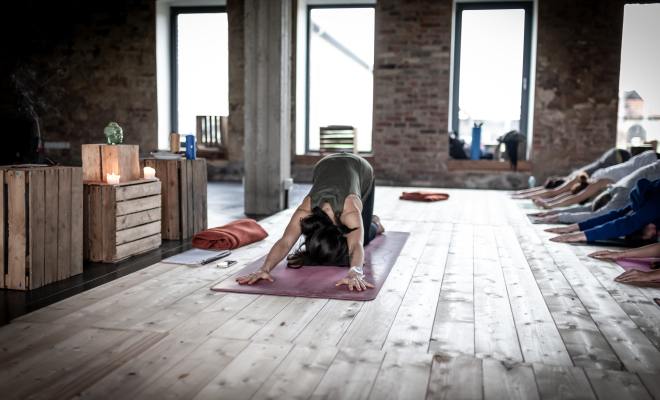While yoga has been proven to provide significant health benefits such as balance, flexibility and exercise, some people may be surprised that it’s a fantastic element to add to your nightly rest routine.
For most people, a relaxation routine will avoid any activity that promotes a rise in heart rate and circulation out of fear that this extra increase in energy may result in difficulty sleeping. However, yoga has some unique qualities that not only aid sleep, but can really help people suffering from chronic sleep deprivation.
Here are some reasons why you should include yoga as part of your nighttime routine.
Improve sleep for people suffering from insomnia
Recently Harvard Medical School Study identify improvements in sleep for people with primary and secondary insomnia. Primary insomnia is a condition in which sleeplessness is independent of other sleep disorders, and secondary insomnia is a consequence of other medical conditions. The study showed improvements in several areas of sleep such as sleep efficiency, bedtime, wake time, time it takes to fall asleep, and wake time after falling asleep.
Reduce stress
Yoga is well known for its ability to reduce stress and worry by focusing on personal awareness in a state of being. It allows one to focus on the present moment and put aside thoughts of the unchangeable past and the highly unpredictable future. Yoga also helps lower cortisol levels in the body which can trigger the immune system to increase blood flow and heart rate as a reaction to stress and the body’s fight or flight mechanism.
Helps relieve pain
Yoga incorporates a focus on breathing, together with stretching, exercise and postures in a number of motions. These movements help create a range of motion for your joints in addition to strengthen muscle tissue and bone density. When it comes to relief painfulyoga is particularly helpful for people who suffer from frequent back and joint pain, tense muscles, and other types physical pain.
Your breath calms the mind
In yoga, your body’s movements will mimic your own breathing. As your breathing slows down, your movements also slow down and become more fluid. The relaxation that comes from flowing movements and mild, focused breaths helps calm the mind, reduce heart rate, lower blood pressure, and relax the body.
Limit head chat
Mindful meditation allows you thought to focus on one thought. Yoga teaches you to identify when your mind is wandering and how to gently force your attention back to your breath. This helps improve sleep quality as people suffering from stress, anxiety and depression often get stuck in thought cycles that stop their minds from relaxing leading to wakefulness.
Yoga is a form of whole-body meditation that combines mindfulness meditation and focusing on breathing to move your body smoothly into a number of poses that include body postures. Yoga can aid sleep by managing stress-inducing thoughts, reducing stress, and relieving pain while relaxing the mind.












